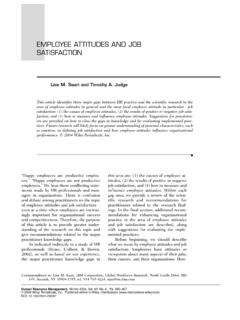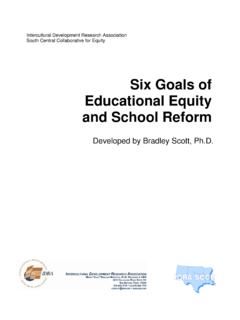Transcription of #StatusOfMind - RSPH
1 #StatusOfMind Social media and young people's mental health and wellbeing 9:41. AM. 89%. May 2017. Contents Section Page 1. Foreword 5. 1. Background 6. 2. Potential effects of social media (negative) 8. 3. Potential effects of social media (positive) 13. 4. Profiling social media platforms: the YHM survey 17. 5. At a glance: ranking of social media platforms by health impact 18. 6. Calls to action 24. 2 Status of Mind: Social media and young people's mental health KEY POINTS. 91% of 16-24 year olds use the internet for social networking Social media has been described as more addictive than cigarettes and alcohol Rates of anxiety and depression in young people have risen 70% in the past 25 years Social media use is linked with increased rates of anxiety.
2 Depression and poor sleep Cyber bullying is a growing problem with 7 in 10 young people saying they have experienced it Social media can improve young people's access to other people's experiences of health and expert health information Those who use social media report being more emotionally supported through their contacts CALLS TO ACTION. Introduction of a pop-up heavy usage warning on social media Social media platforms to highlight when photos of people have been digitally manipulated NHS England to apply the Information Standard Principles to health information published via social media Safe social media use to be taught during PSHE education in schools Social media platforms to identify users who could be suffering from mental health problems by their posts.
3 And discreetly signpost to support Youth-workers and other professionals who engage with young people to have a digital (including social) media component in their training More research to be carried out into the effects of social media on young people's mental health Status of Mind: Social media and young people's mental health 3. Foreword Shirley Cramer CBE Dr Becky Inkster Chief Executive, Royal Society for Public Health Cambridge Neuroscience, University of Cambridge Social media is now a part of almost everyone's life, but none more so than our young population of digital natives.
4 Its rise to popularity during the mid-2000s has revolutionised the way in which we communicate and share information, both as individuals and as a society. Whilst social media has permeated nearly every aspect of the mainstream, we are only just beginning to take stock of the extent to which it impacts our lives. With growing consideration being given to the importance of mental health and wellbeing within the health discourse, there has never been a more pertinent time to talk about the relationship between social media and mental health.
5 Social media has become a space in which we form and build relationships, shape self-identity, express ourselves, and learn about the world around us; it is intrinsically linked to mental health. We must therefore strive to understand its impact on mental health, and especially the mental health of the younger population. The highest prevalence of social media use is seen amongst those aged 16-24. That these years are a crucial period for emotional and psychosocial development only reinforces the need for greater understanding of social media's impact.
6 It certainly isn't all bad news; social media platforms can promote a sense of community and facilitate the provision of emotional support. With its almost universal reach and unprecedented ability to connect people from all walks of life, social media holds the potential to be a powerful lever to support good mental health. But there are also risks, risks which have already opened the door to significant problems for mental health and wellbeing, and which must be addressed if social media is to fulfill its potential as a force for good.
7 Being a teenager is hard enough, but the pressures faced by young people online are arguably unique to this digital generation. It is vitally important that we put safeguards in place. We hope that this report, its findings, and the issues it explores can really push forward the conversation surrounding social media and young people's mental health and wellbeing. We hope that this conversation will be transformed into action that empowers young people with the knowledge and tools to navigate social platforms online in a way that protects and promotes their health and wellbeing.
8 Social media isn't going away any time soon, and nor should it. We must be ready to nurture the innovation that the future holds. Status of Mind: Social media and young people's mental health 5. Background Social media has revolutionised the way we connect with each other. Platforms such as Facebook, Twitter and Instagram are now used by one in four people The use of social media has become an integral part of many people's lives, connecting them with friends, family and strangers from across the globe.
9 Many young people have never known a world without instant access to the internet and social networking platforms. The internet and social media has transformed the way in which this generation - commonly known as digital natives' - interact and communicate with each While this presents great opportunities for innovation, learning and creativity, emerging evidence is raising concerns about the potential implications for our young people's mental health. Social media addiction is thought to affect around 5% of young people,3 with social media being described as more addictive than cigarettes and Such is the concern surrounding social media and young people that in late 2016 MPs debated the issue in The platforms that are supposed to help young people connect with each other may actually be fuelling a mental health Daily, or almost daily use of the internet has risen rapidly in the last decade.
10 In 2006, just 35% of people in the UK used the internet on a daily basis. This figure has now climbed to 82% of people in Overall use of social media has also risen broadly in line with internet use. In 2007, only 22% of people in the UK had at least one social media profile; by 2016, this figure had risen to 89%.8, 9, 10. Facebook is the most commonly used social media platform with around 30 million UK users. Twitter comes in as the second most used with 15 million UK users. The next most popular platforms are Google+, LinkedIn, Pinterest, Instagram and Social media use is far more prevalent among young people than older generations.




